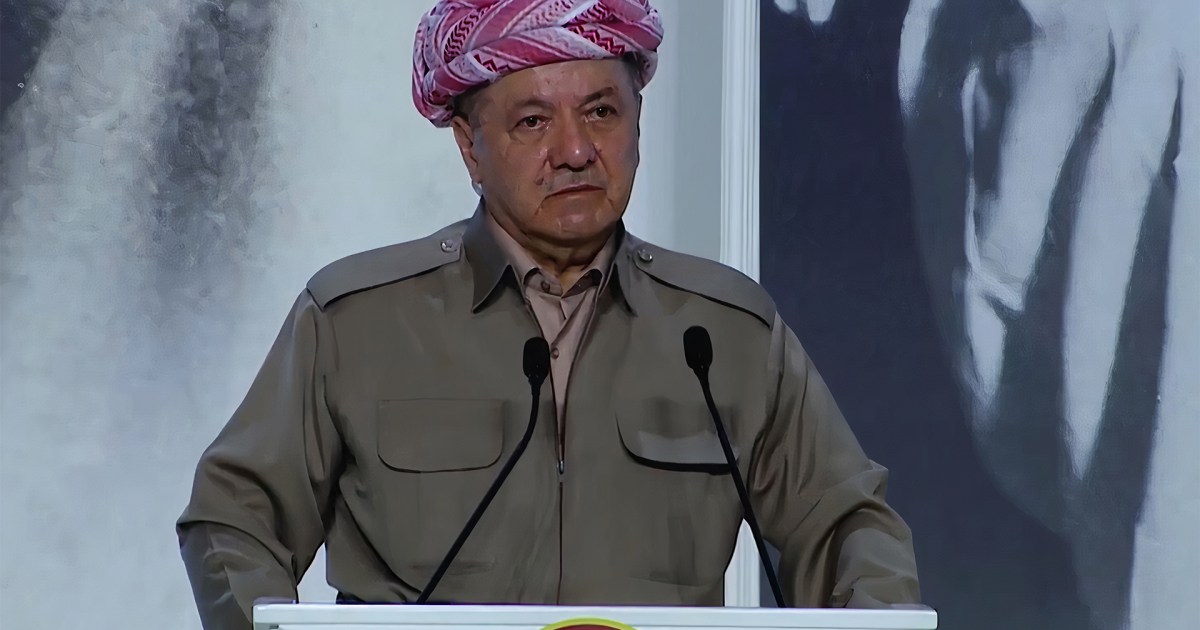The head of the Kurdistan Democratic Party, Masoud Barzani, described the political crisis in Iraq as deep, but he welcomed the constitution to be a "rule" between Baghdad and Erbil.
In a speech today in Erbil (the center of the Kurdistan region of Iraq), Barzani affirmed his rejection of what he described as Baghdad's attempt to seize once again the powers of the region, calling on all parties to dialogue and understanding to get out of the current political crisis that Iraq is going through.
In his speech, the Kurdish leader said, "We have always been deceived by our simplicity and kindness. I wish we knew what we know today before 2003. It became clear to us that the culture of canceling the other and not accepting it still exists in Iraq."
"We are now living in a real crisis, where terrorism remains a serious threat and I have always said that it will not end," he added.
He continued, "If Baghdad is serious about reaching an agreement with us, then the constitution should be the ruling, but if the constitution is excluded and moody decisions are taken in order to take away the rights of our people, this is completely unacceptable to us and we will not allow it."
And last month, the Prime Minister of the Kurdistan Region of Iraq, Masrour Barzani, announced his rejection of the decision of the Iraqi Federal Supreme Court to hand over the oil and gas file to Baghdad, describing it as "political" and unconstitutional.
During a dialogue session held within the framework of the International Economic Forum in Davos, which was held last month in Switzerland, Barzani considered that the Iraqi Federal Court was not formed according to the constitutional formula that was prescribed, and that it is used to issue "political decisions."
He explained that the region respects and abides by the constitution, and performs its duties within its framework, but at the same time demands "the rights that were granted to us under it."
Last February, the Federal Supreme Court of Iraq considered the oil and gas law - which regulates the oil industry in Iraqi Kurdistan - unconstitutional, and demanded that the Kurdish authorities hand over their supplies of crude to Baghdad.
This comes in light of the failure of the Iraqi political forces to agree on the formation of the federal government 8 months after the legislative elections that took place last October, and government institutions are still experiencing paralysis with the inability to elect a president for the country, as Parliament must - with the attendance of more than two thirds Electing a new president for the country, who then assigns the prime minister to form a government.
Pending a way out of the impasse, the outgoing President Barham Salih, the candidate for a new term, and Prime Minister Mustafa Al-Kazemi continue to conduct business.

